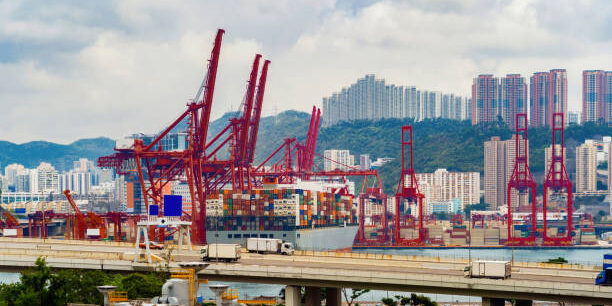A recent government resolution in Vietnam has emphasized the need for sustainable supply chain development within the logistics sector, aiming to enhance the country’s competitiveness and bolster its logistics services. Green supply chains, once considered a trend, are now recognized as essential practices encompassing environmentally-friendly production and sustainable operations.
Representatives from business associations and enterprises highlight the necessity for swift adaptation to global economic fluctuations. Green growth and sustainable development are pivotal global imperatives, integrated into Vietnam’s national green growth strategy, which prioritizes economic restructuring, innovative growth models, environmental sustainability, and social equity.
In response, the logistics industry is increasingly mandated to adopt green practices as a necessary requirement rather than an optional trend. Major logistics players worldwide, including shipping lines and seaport operators, are proactively initiating emission reduction and green energy adoption strategies ahead of regulatory mandates.
Transportation currently contributes significantly to global emissions, underscoring the urgent need for greener logistics practices within Vietnam’s logistics landscape. Transitioning to green supply chains is no longer a distant goal but an immediate necessity, aligning with Vietnam’s commitment to achieving net-zero emissions as pledged at COP26.
Challenges such as transparency within supply chains remain critical, with a large percentage of stakeholders lacking comprehensive understanding. To mitigate these challenges, the industry is leveraging technology and digital transformation to enhance supply chain visibility and reduce operational risks.
Traditional warehouse management methods are being swiftly replaced by automated systems, resulting in notable efficiency gains and error reductions. Automated processes not only streamline operations but also improve inventory management and order fulfillment accuracy.
In addressing the high transportation costs that dominate logistics expenditures in Vietnam, initiatives focusing on CO2 emissions reduction and renewable energy utilization are gaining traction. Industrial parks are adopting synchronized logistics planning strategies to optimize transportation routes and minimize environmental impact.
Moving forward, stakeholders are advocating for continued government support in promoting renewable energy and green logistics initiatives. The integration of renewable energy solutions into logistics operations not only enhances sustainability but also drives economic growth and resilience.
As Vietnam’s logistics sector advances towards sustainable practices, collaboration between industry players and government bodies will be crucial in navigating future challenges and achieving long-term environmental goals.
#ICTTMNews #BreakingNews #LogisticsNews #SustainableSupplyChain #GreenLogistics #VietnamEconomy #EnvironmentalSustainability







